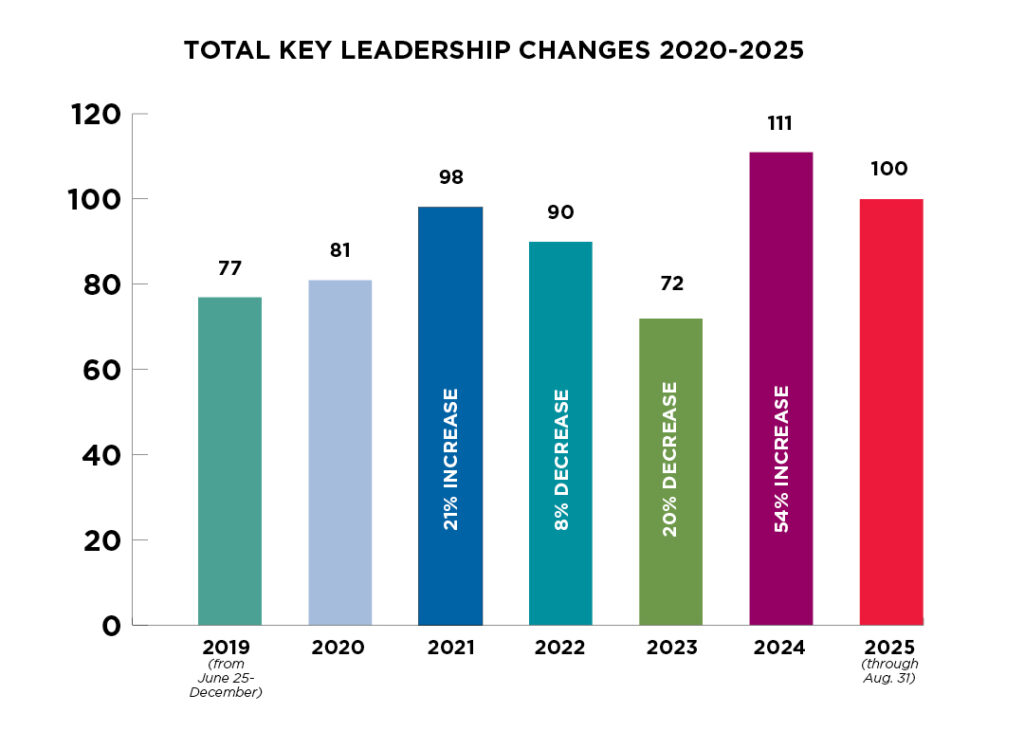7 takeaways from our 2020 Economic Forecast

The Business Record held its annual Economic Forecast last week at the Sheraton West Des Moines hotel. Below are a few takeaways from our staff writers.
Logistics outlook
Greater Des Moines Partnership CEO Jay Byers said he expects to see growth in the region’s logistics sector. Amazon in December announced that it was opening a delivery station in Grimes that will employ hundreds who will prepare packages headed to customers’ doors. Bondurant’s Project Blue Jay, also likely to be Amazon, involves construction of a fulfillment center on about 165 acres east of U.S. Highway 65 and north of Northeast 62nd Avenue. Byers also mentioned Des Moines’ transload facility, which is expected to significantly lower shipping costs. The Des Moines Area Metropolitan Planning Organization was awarded an $11.2 million U.S. Department of Transportation grant for the project in December.
What will China’s trade deals mean for Iowa?
One of the big uncertainties for the economy mentioned by several of the panelists is whether China will deliver on its spending promises for purchases of U.S. goods under the renegotiated trade agreements that have just been signed. Regarding the Iowa economy specifically and China’s $40 billion target for added agricultural spending, Wells Fargo economist Darrell Cronk said that “anything north of $23 billion” will be a plus for the state, even if China falls short of the negotiated level.
For the U.S. economy as a whole, Cronk said that given the modest pace of GDP growth during what has been one of the longest and slowest economic recoveries in history, “you can make the case that there’s a lot more gas in the tank” for economic growth.
Untapped workforce
Workforce – specifically low unemployment – will continue to have an impact on the economy. However, Future Ready Iowa policy adviser Kathy Leggett said it’s important that employers look to portions of Iowa’s population that have barriers to the workforce. Those include people with disabilities and ex-offenders returning to employment.
According to data from the Office of Persons with Disabilities, just over 349,000 Iowans in 2017 reported having a disability – representing 11.3% of the state’s civilian, noninstitutionalized population. The number of Iowans between 18 and 64 with a disability who were employed in 2017 was 77,746, according to the agency.
Each year between 5,000 and 6,000 inmates are released from Iowa’s nine correctional institutions – and face considerable hurdles to find employment and avoid returning to prison.
How stock gains are generated matters
In 2019, only 8% of U.S. equity returns of publicly traded companies were generated from earnings growth, while more than 92% of gains in stock prices last year came from price/earnings expansion, Cronk noted. Ideally, these two factors should be flip-flopped. “For 2020 we need to have better growth in earnings so that the majority of stock price growth comes from earnings growth,” he said.
Take time to reflect
A helpful exercise that Tom Root from Drake said he often uses in his academic department is to take some time to sit down and assess what is the one unexpected event that, if it occurred, would significantly upend your organization’s plans in the coming year.
Iowa’s economy
Panelists were generally optimistic about the outlook for Iowa’s economy. Part of that is due to the state’s Revenue Estimating Conference in December projecting Iowa would collect more than $8 billion in net general fund tax receipts this fiscal year.
It’s the first time in Iowa’s history that the Revenue Estimating Conference has estimated receipts over $8 billion, Joe Murphy, executive director of the Iowa Business Council, said.
“That is significant. That is 2 1/2 percent growth over the course of the next year. … It’s $235 million in new money coming into the state’s budget. Those are all really, really positive things.”
Contributing to the growth in tax collections are the sales tax receipts Iowa now collects from purchases made online, Murphy said.
While Iowa collected sales taxes from online retailers that had a brick-and-mortar presence in the state, in many instances it didn’t collect sales taxes from online sales to retailers not located in the state. A June 2018 U.S. Supreme Court ruling opened the door for states to collect sales taxes from most online sales. In the fiscal year that ended June 30, 2019, Iowa collected $24.6 million from the remote users sales tax, according to an annual report released by the Iowa Department of Revenue in December. The state began collecting the tax in January 2019.
“As people continue to do more and more of their shopping online, [the amount collected from the remote tax] will continue to generate growth as well,” Murphy said.
Presidential election’s impact on Des Moines area
Numerous references were made to November’s presidential election. Panelists generally agreed it was too early for business leaders to make decisions on operations or portfolios. Jay Byers, CEO of the Greater Des Moines Partnership, said regardless of the outcome of the election, “this region has done well under both the Republican administration that is in the White House and under Democratic leadership as well. We’ve been able to figure out how to be successful under both [parties].”









